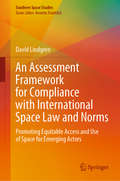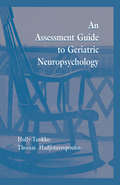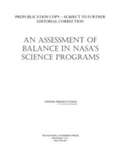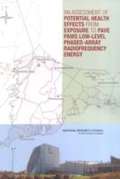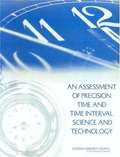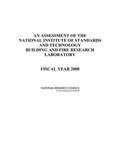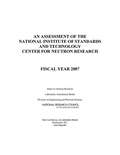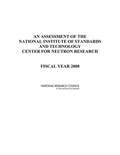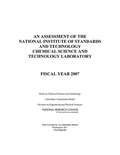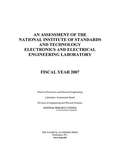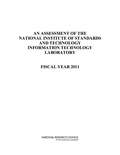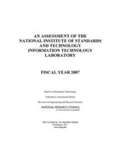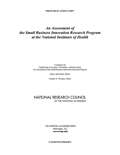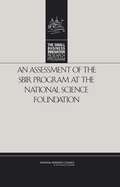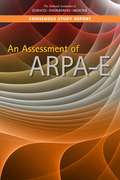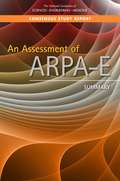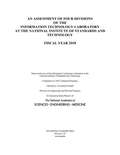- Table View
- List View
An Assessment Framework for Compliance with International Space Law and Norms: Promoting Equitable Access and Use of Space for Emerging Actors (Southern Space Studies)
by David LindgrenThis book proposes a framework for assessing countries’ levels of compliance with international space law and norms. It begins by exploring the development of two movements – the evidence-based policymaking and programming movement, and the rise of ratings and rankings research – and their growth across various disciplines. The analysis suggests that such efforts are useful in gauging the behavior of countries in space according to how well they adhere to existing space law and norms. To date, there is no comprehensive, periodic, and systematic measure of countries’ efforts to comply with space law and norms; this work endeavors to fill that gap by offering a framework in which to assess compliance. Applying the framework results in five possible ratings that a country may be assigned, ranging from highly compliant to non-compliant. Ideally, the proposed framework can be used to promote compliance, and with it, space security and sustainability.
An Assessment Guide To Geriatric Neuropsychology
by Thomas Hadjistavropoulos Holly TuokkoAt least half of all neuropsychological assessments are performed on elderly persons, but the information clinicians need to make appropriate judgment calls is widely scattered. Several books offering general descriptions of the cognitive functioning of the aged or of neuropsychological conditions affecting them are helpful to practitioners but do not provide reliable and valid normative information. Two books that do provide this information do not focus on geriatric populations. A concise, yet comprehensive summary of what we now know about those over 65--with an extensive bibliography--An Assessment Guide to Geriatric Neuropsychology fills the gap. The neuropsychological assessment of elderly persons involves not only the performance-based measurement of various capacities but heavy reliance on reports from caregivers (both formal and informal) about the day to day functioning of the affected person. It also raises important, yet often neglected, ethical concerns. The authors discuss all the measures that detect and discriminate among cognitive disorders of elderly persons, including special measures relevant to caregiver reports, and provide useful tables to assist in differential diagnosis. They also reflect on the ethical issues that often confront the assessor of an elderly individual: informed consent, confidentiality, the right of bodily autonomy and self-determination, and appropriate feedback. This book will be an invaluable resource for all those called on to evaluate older clients.
An Assessment Of Balance In Nasa's Science Programs
by National Research Council of the National AcademiesWhen the space exploration initiative was announced, Congress asked the NRC to review the science NASA proposed to carryout under the initiative. It also asked the NRC to assess whether this program would provide balanced scientific research across the established disciplines supported by NASA in addition to supporting the new initiative. In 2005, the NRC released three studies focusing on a portion of that task, but changes at NASA forced the postponement of the last phase. This report presents that last phase with an assessment of the health of the NASA scientific disciplines under the budget requests imposed by the exploration initiative. The report also provides an analysis of whether the science budget appropriately reflects cross-disciplinary scientific priorities.
An Assessment Of Potential Health Effects From Exposure To Pave Paws Low-level Phased-array Radiofrequency Energy
by National Research Council of the National AcademiesPAVE PAWS is a phased-array warning system designed to detect and track sea-launched and intercontinental ballistic missiles operated on Cape Cod since 1979 by the U.S. Air Force Space Command. In 1979, the National Research Council issued two reports to address concerns from Cape Cod residents about the safety and possible health effects of the radiofrequency energy from the radar. Following up on the1979 report, the new report finds no evidence of adverse health effects to Cape Cod residents from long-term exposure to the PAVE PAWS radar. The report specifically investigated whether the PAVE PAWS radar might be responsible in part for the reported higher rates of certain cancers in the area, but concludes there is no increase in the total number of cancers or in specific cancers of the prostate, breast, lung, or colon due to radiation exposure from PAVE PAWS. The report did find in the scientific literature a few biological responses to radiofrequency exposures that were statistically significant. Such responses do not necessarily result in adverse health effects, but the report recommends additional studies to better discern the significance, if any, of those findings.
An Assessment Of Precision Time And Time Interval Science And Technology
by Technology Committee for an Assessment of Precision Time Time Interval ScienceAn Assessment Of Precision Time And Time Interval Science And Technology
An Assessment Of The National Institute Of Standards And Technology Building And Fire Research Laboratory: Fiscal Year 2008
by National Research Council of the National AcademiesA panel of experts appointed by the National Research Council assessed the scientific and technical work of the Building and Fire Research Laboratory (BFRL) of the National Institute of Standards and Technology (NIST). The scope of the assessment included the following criteria: (1) the technical merit of the current laboratory programs relative to the current state of the art worldwide; (2) the adequacy of the laboratory facilities, equipment, and human resources, as they affect the quality of the laboratory technical programs; and (3) the degree to which the laboratory programs in measurement science and standards achieve their stated objectives and desired impact. The book finds that, overall the technical merit of the programs reviewed within the BFRL is very high and generally at a state-of-the-art level. The programs have clear ties to the overall BFRL Strategic Priority Areas and are well aligned with the mission of NIST, which is to promote U.S. innovation and industrial competitiveness by advancing measurement science, standards, and technology in ways that enhance economic security and improve our quality of life.
An Assessment Of The National Institute Of Standards And Technology Center For Neutron Research: Fiscal Year 2007
by National Research Council of the National AcademiesThe book on the NCNR presents a general assessment of the Lab, followed by assessments of its facilities and personnel, its role as a user facility, and its science and technology. <P><P>The book notes that the NCNR provides a high flux of neutrons to an evolving suite of high-quality instruments, has a substantial and satisfied external user community, and its in-house science and technology is robust.
An Assessment Of The National Institute Of Standards And Technology Center For Neutron Research: Fiscal Year 2008
by National Research Council of the National AcademiesThe National Institute of Standards and Technology [NIST] Center for Neutron Research (NCNR) is a national user facility whose mission is to ensure the availability of neutron measurement capabilities in order to meet the needs of U.S. researchers from industry, academia, and government agencies. <P><P> A panel of experts from the National Research Council evaluated the NCNR by the following criteria: (1) the technical merit of the current laboratory programs relative to the current state of the art worldwide; (2) the adequacy of the laboratory facilities, equipment, and human resources, as they affect the quality of the laboratory technical programs; and (3) the degree to which the laboratory programs in measurement science and standards achieve their stated objectives and desired impact. This book finds that NCNR is an extremely reliable and comprehensive neutron scattering facility. Even as the other neutron source in the nation-the Spallation Neutron Source (SNS)-becomes increasingly operational and the Oak Ridge High Flux Isotope Reactor (HFIR) comes back online, the NCNR will continue to be a vital resource for meeting the broad spectrum of user needs for and scientific objectives related to neutron scattering.
An Assessment Of The National Institute Of Standards And Technology Chemical Science And Technology Laboratory: Fiscal Year 2007
by National Research Council of the National AcademiesThe report on the CSTL presents an assessment of the Lab’s five divisions, covering—where appropriate—how well each division addresses national priorities, its impact and level of innovation, its technical merit, and its infrastructure. The report notes that the CSTL is meeting its obligations and its priorities are appropriate and aligned with national priorities.
An Assessment Of The National Institute Of Standards And Technology Electronics And Electrical Engineering Laboratory: Fiscal Year 2007
by National Research Council of the National AcademiesThe report on the EEEL presents an assessment of the Lab’s four divisions. The assessment is based on four criteria: alignment with national priorities, motivation of its programs, technical merit, and technical program quality. The report also provides a look at three additional concerns: staffing and funding, international issues, and the planning process.
An Assessment Of The National Institute Of Standards And Technology Information Technology Laboratory
by The National Academy of SciencesSince 1959, the National Research Council (NRC), at the request of the National Institute of Standards and Technology (NIST), has annually assembled panels of experts to assess the quality and effectiveness of the NIST measurements and standards laboratories. In 2011, the NRC evaluated three of the six NIST laboratories: the Center for Nanoscale Science and Technology (CNST), the NIST Center for Neutron Research (NCNR) and the Information Technology Laboratory (ITL). Each of these was addressed individually by a separate panel of experts; this report assesses ITL.
An Assessment Of The National Institute Of Standards And Technology Information Technology Laboratory: Fiscal Year 2007
by National Research Council of the National AcademiesThe report on the ITL presents a general assessment of the laboratory including a look at its research strategies, opportunities, planning for growth, research culture, and computing infrastructure; and provides assessments of the laboratory’s six divisions. The report notes that the work of the ITL generally ranks at or near the top of the work being done by peer institutions.
An Assessment Of The Sbir Program
by National Research Council of the National AcademiesThe SBIR program allocates 2.5 percent of 11 federal agencies' extramural R&D budgets to fund R&D projects by small businesses, providing approximately $2 billion annually in competitive awards. At the request of Congress, the National Academies conducted a comprehensive study of how the SBIR program has stimulated technological innovation and used small businesses to meet federal research and development needs. Drawing substantially on new data collection, this report provides a comprehensive overview of the SBIR program at the five agencies representing 96 percent of program expenditure-- DOD, NIH, NSF, DOE, and NASA--and makes recommendations on improvements to the program. Separate books on each agency will also be issued.
An Assessment Of The Sbir Program At The Department Of Energy
by National Research Council of the National AcademiesThe Small Business Innovation Research (SBIR) program is one of the largest examples of U.S. public-private partnerships. Founded in 1982, SBIR was designed to encourage small business to develop new processes and products and to provide quality research in support of the many missions of the U.S. government, including health, energy, the environment, and national defense. In response to a request from the U.S. Congress, the National Research Council assessed SBIR as administered by the five federal agencies that together make up 96 percent of program expenditures. This book, one of six in the series, reports on the SBIR program at the Department of Energy. It finds that, in spite of resource constraints, the DoE has made significant progress in meeting the legislative objectives of SBIR and that the program is effectively addressing the mission of the Department of Energy. The book documents the achievements and challenges of the program and recommends programmatic changes to make the SBIR program even more effective in achieving its legislative goals.
An Assessment Of The Sbir Program At The National Aeronautics And Space Administration
by National Research Council of the National AcademiesThe Small Business Innovation Research (SBIR) program is one of the largest examples of U.S. public-private partnerships. Founded in 1982, SBIR was designed to encourage small business to develop new processes and products and to provide quality research in support of the many missions of the U.S. government, including health, energy, the environment, and national defense. In response to a request from the U.S. Congress, the National Research Council assessed SBIR as administered by the five federal agencies that together make up 96 percent of program expenditures. This book, one of six in the series, reports on the SBIR program at the National Aeronautics and Space Administration, and finds that the program is making significant progress in achieving the Congressional goals for the program. Keeping in mind NASA's unique mission and the recent significant changes to the program, the committee found the SBIR program to be sound in concept and effective in practice at NASA.. The book recommends programmatic changes that should make the SBIR program even more effective in achieving its legislative goals.
An Assessment Of The Sbir Program At The National Institutes Of Health
by National Research Council of the National AcademiesThe SBIR program allocates 2.5 percent of 11 federal agencies' extramural R&D budgets to fund R&D projects by small businesses, providing approximately $2 billion annually in competitive awards. At the request of Congress the National Academies conducted a comprehensive study of how the SBIR program has stimulated technological innovation and used small businesses to meet federal research and development needs. Drawing substantially on new data collection, this book examines the SBIR program at the National Institutes of Health and makes recommendations for improvements. Separate reports will assess the SBIR program at DOD, NSF, DOE, and NASA, respectively, along with a comprehensive report on the entire program.
An Assessment Of The Sbir Program At The National Science Foundation
by National Research Council of the National AcademiesThe Small Business Innovation Research (SBIR) program is one of the largest examples of U.S. public-private partnerships. Founded in 1982, SBIR was designed to encourage small business to develop new processes and products and to provide quality research in support of the many missions of the U.S. government, including health, energy, the environment, and national defense. In response to a request from the U.S. Congress, the National Research Council assessed SBIR as administered by the five federal agencies that together make up 96 percent of program expenditures. This book, one of six in the series, reports on the SBIR program at the National Science Foundation. The study finds that the SBIR program is sound in concept and effective in practice, but that it can also be improved. Currently, the program is delivering results that meet most of the congressional objectives, including stimulating technological innovation, increasing private-sector commercialization of innovations, using small businesses to meet federal research and development needs, and fostering participation by minority and disadvantaged persons. The book suggests ways in which the program can improve operations, continue to increase private-sector commercialization, and improve participation by women and minorities.
An Assessment Of The Sbir Program At The National Science Foundation
by National Research Council of the National AcademiesThe Small Business Innovation Research (SBIR) program is one of the largest examples of U.S. public-private partnerships. Founded in 1982, SBIR was designed to encourage small business to develop new processes and products and to provide quality research in support of the many missions of the U.S. government, including health, energy, the environment, and national defense. In response to a request from the U.S. Congress, the National Research Council assessed SBIR as administered by the five federal agencies that together make up 96 percent of program expenditures. This book, one of six in the series, reports on the SBIR program at the National Science Foundation. The study finds that the SBIR program is sound in concept and effective in practice, but that it can also be improved. Currently, the program is delivering results that meet most of the congressional objectives, including stimulating technological innovation, increasing private-sector commercialization of innovations, using small businesses to meet federal research and development needs, and fostering participation by minority and disadvantaged persons. The book suggests ways in which the program can improve operations, continue to increase private-sector commercialization, and improve participation by women and minorities.
An Assessment of ARPA-E
by Engineering Medicine National Academies of SciencesIn 2005, the National Research Council report Rising Above the Gathering Storm recommended a new way for the federal government to spur technological breakthroughs in the energy sector. It recommended the creation of a new agency, the Advanced Research Projects Agency-Energy, or ARPA-E, as an adaptation of the Defense Advanced Research Projects Agency (DARPA) model—widely considered a successful experiment that has funded out-of-the-box, transformative research and engineering that made possible the Internet, GPS, and stealth aircraft. This new agency was envisioned as a means of tackling the nation’s energy challenges in a way that could translate basic research into technological breakthroughs while also addressing economic, environmental, and security issues. Congress authorized ARPA-E in the 2007 America COMPETES Act and requested an early assessment following 6 years of operation to examine the agency’s progress toward achieving its statutory mission and goals. This report documents the results of that assessment. It includes both an operational assessment of the agency’s funding programs and a technical assessment of its awards, to the extent possible.
An Assessment of ARPA-E: Summary
by Engineering Medicine National Academies of SciencesIn 2005, the National Research Council report Rising Above the Gathering Storm recommended a new way for the federal government to spur technological breakthroughs in the energy sector. It recommended the creation of a new agency, the Advanced Research Projects Agency-Energy, or ARPA-E, as an adaptation of the Defense Advanced Research Projects Agency (DARPA) model—widely considered a successful experiment that has funded out-of-the-box, transformative research and engineering that made possible the Internet, GPS, and stealth aircraft. This new agency was envisioned as a means of tackling the nation’s energy challenges in a way that could translate basic research into technological breakthroughs while also addressing economic, environmental, and security issues. Congress authorized ARPA-E in the 2007 America COMPETES Act and requested an early assessment following 6 years of operation to examine the agency’s progress toward achieving its statutory mission and goals. This publication summarizes the results of that assessment.
An Assessment of Data, Tools, and Metrics for Equity in Decisions About Surface Transportation Investments
by Transportation Research Board National Academies of Sciences, Engineering, and Medicine Consensus and Advisory Studies Division Committee on Data, Metrics, and Analytic Methods for Assessing Equity Impacts of Surface Transportation Investments: Phase 2 Study to Support State and Local Decision MakingThe U.S. Department of Transportation and Congress should direct and support states, localities, regional planning organizations, and other recipients of federal surface transportation funds to pilot test the use of metrics for informing transportation investments aimed at addressing the needs of all people in a deliberate and equitable manner. This is among the recommendations in TRB Special Report 356: An Assessment of Data, Tools, and Metrics for Equity in Decisions About Surface Transportation Investments, from the Transportation Research Board of the National Academies of Sciences, Engineering, and Medicine. The report, called for by Congress, considers the needs of state and local jurisdictions as they strive to use their federal transportation funds to promote safe and reliable access to life needs such as housing, jobs, health care, and education, and to avoid and mitigate any adverse effects from transportation. The report’s findings and advice will also inform a follow-on National Academies’ research project to pilot test promising approaches for equity analysis.
An Assessment of Estimates of Term Structure Models for the United States
by Carlos Medeiros Ying HeA report from the International Monetary Fund.
An Assessment of External Price Competitiveness for Mozambique
by Francis VitekA report from the International Monetary Fund.
An Assessment of Fiscal Rules in the United Kingdom
by Michael KellA report from the International Monetary Fund.
An Assessment of Four Divisions of the Information Technology Laboratory at the National Institute of Standards and Technology: Fiscal Year 2018
by Engineering Medicine National Academies of SciencesAn Assessment of Four Divisions of the Information Technology Laboratory at the National Institute of Standards and Technology: Fiscal Year 2018 assesses the scientific and technical work performed by four divisions of the National Institute of Standards and Technology (NIST) Information Technology Laboratory. This publication reviews technical reports and technical program descriptions prepared by NIST staff and summarizes the findings of the authoring panel.
